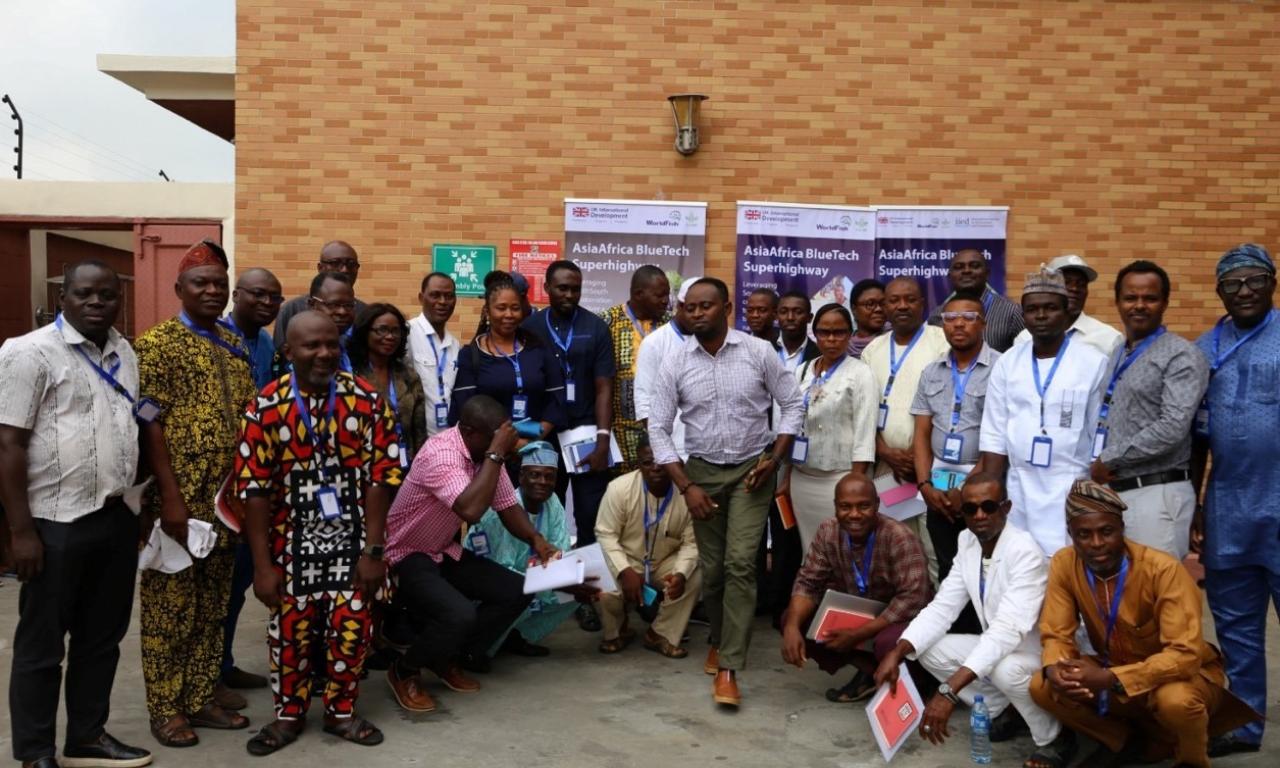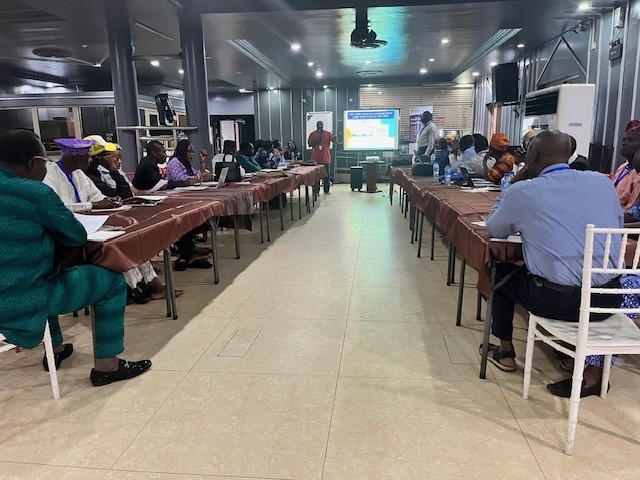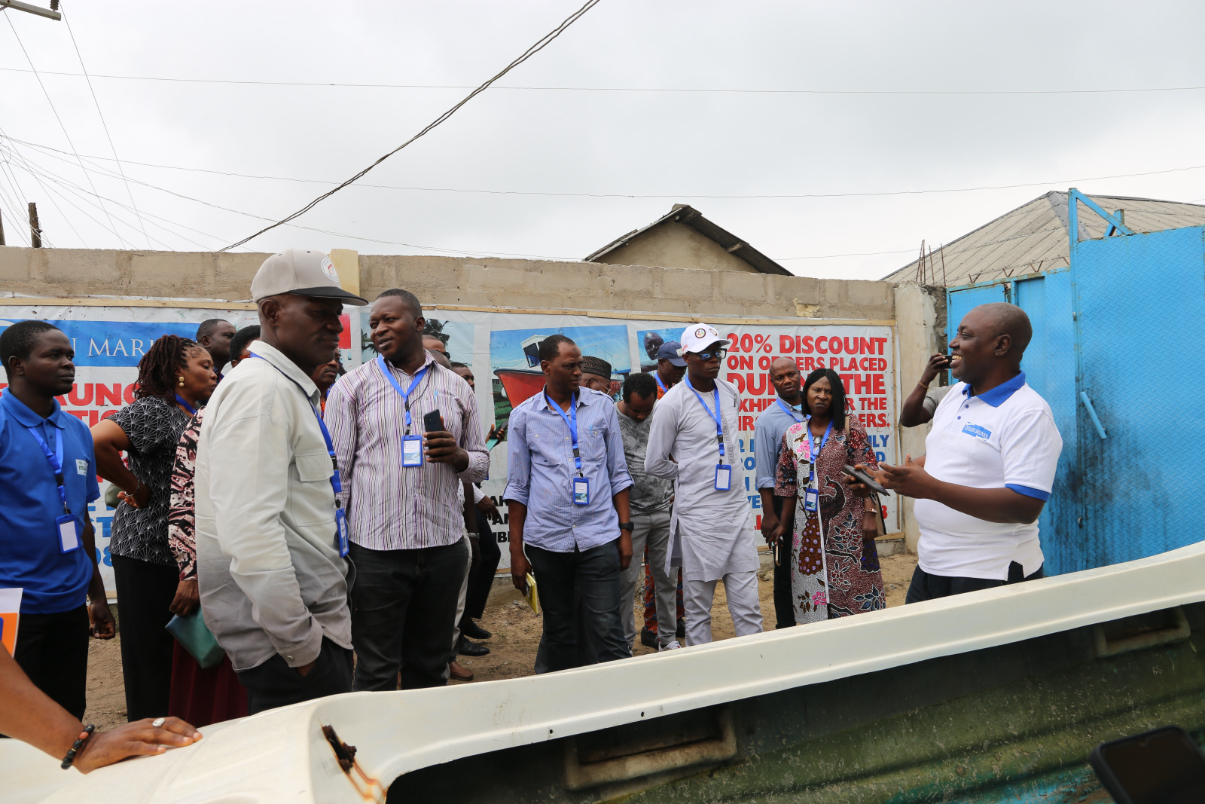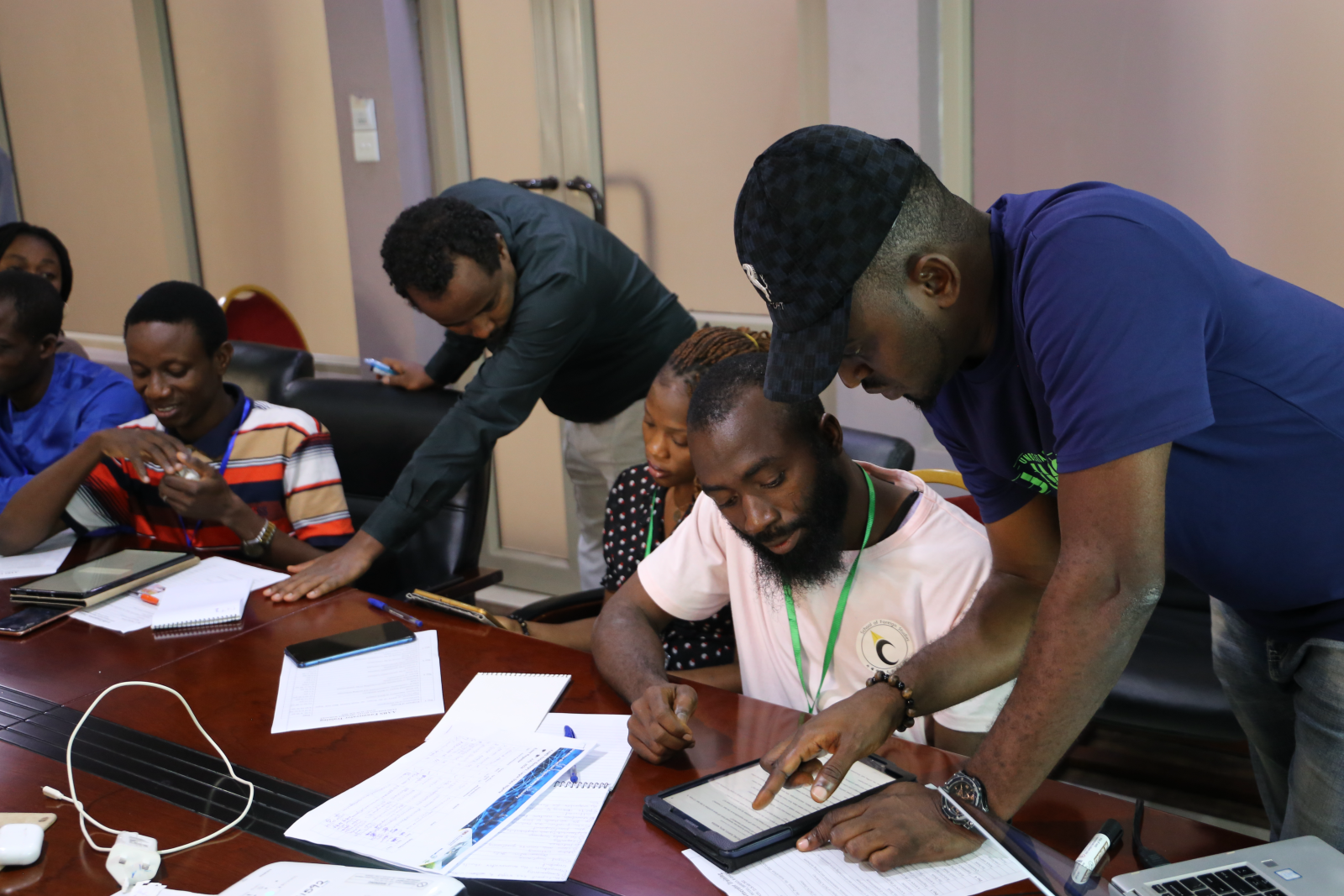
Aquatic food systems provide nutrition for more than 3.3 billion people and livelihoods for 600 million, primarily in small-scale systems. However, climate change, overexploitation, and pollution threaten their sustainability, with rising sea levels, ocean warming, and biodiversity loss impacting coastal communities.
The Asia-Africa BlueTech Superhighway (AABS) project, led by WorldFish, is leveraging South-South collaboration to build sustainable, climate-resilient aquatic food systems. Funded by the UK Blue Planet Fund, AABS focuses on restoring ecosystems and transforming livelihoods, particularly for women and youth, in Asia and Africa. Phase 1 (2023–2027) aims to support 300,000 beneficiaries across Bangladesh, Kenya, Mozambique, Nigeria, and Tanzania, promoting equitable and nature-positive growth.
To realize these goals, the Nigeria AABS team has taken key steps towards implementing Work Package 2 (WP2) of the Integrated Multitrophic Aquaculture (IMTA) system by conducting a scoping study. This included stakeholder workshops, field visits and data collection from focus groups.
The workshop took place in Badagry, Lagos State, Nigeria from July 22-26, 2024, with the following objectives:
- Introduce the AABS project to stakeholders in the target states of Ondo, Ogun, and Lagos.
- Bring potential partners together (research institutes and universities) for presentations on current research aligned with the AABS project and identify opportunities for collaboration.
- Interact with stakeholders on specific coastal activities in their states, with references to the value chain and species cultured.
- Understand the legal issues associated with the IMTA implementation in the target states.
- Visit coastal communities for site assessment and interactions.
The technical session during the workshop consisted of presentations from Dr. Okomoda Victor Tosin, WorldFish Nigeria Technical Scientist on AABS-WP2, on the transformative initiative of the project. He reiterated the project objectives of enhancing food security, creating job opportunities, and ensuring the sustainable management of marine resources.
Professor Akintola Shehu, Lead, AABS Partner at Lagos State University (LASU), detailed the role of the university in the achievements of AABS while Dr. Markose, WorldFish Environmental Economist expert, and James Fasakin, WorldFish Nigeria Research Analyst, delivered presentations on “Global warming, Environment and IMTA” and “Economic Analysis of IMTA” respectively.
Interactions with stakeholders revealed that core marine aquaculture of finfish, shellfish and seaweed are not present in the study areas.

Field Trip to Coastal Areas
The field trip undertaken during the workshop was to the Magbon Alade community in the Ibeju-Lekki Local Government Area of Lagos State. Stakeholders engaged the fisherfolks, women, and other community members in interactions that advanced their understanding of the coastal fishing activities, technologies, and challenges. Among the groups interacted with were the fish net menders seated in clusters and doing their daily activities; fishermen at the landing sites with catches cutting across different species; and fish boat menders, who are mainly African foreigners mending large wooden boats commonly used in the area.
The stakeholders also saw the solar-powered ice-making machine and fish cold room installed by the local fisherman cooperative society at the Badore Ajah satellite office of the Nigerian Institute for Oceanography and Marine Research (NIOMR).
Not too far from the Badore Ajah satellite office was the temporary site of the Ceylon Marines Company, a local manufacturer of fiberglass fishing vessels. This gave the stakeholders the opportunity to see the processes for making these boats locally. Welcoming the stakeholders was the Executive Director and Executive Vice Chairman who conducted a tour and explained that it took an average of three days to finish making an offshore fishing sail, which would be valued for about 30 million naira as of July 2024.

Enumerators’ Training and Baseline Data Collection
The training of enumerators for the AABS-WP2 Integrated Multi-Trophic Aquaculture (IMTA) baseline data collection focused on preparing participants with the knowledge, skills, and tools to gather consistent, accurate, and high-quality data. This data is crucial for understanding existing conditions in Nigeria's aquaculture systems and serves as the foundation for monitoring and evaluating the impact of IMTA practices.
The training aimed to:
- Build the capacity of enumerators in effective data collection methodologies.
- Enhance their understanding of the project’s goals and data requirements.
- Equip them with the necessary tools and resources for accurate data collection.
- Strengthen their skills in data management and quality control.
The training covered data collection methodologies, including sampling techniques, GPS use, and quality control measures, focusing on socioeconomic, environmental, baseline data. Participants learned IMTA principles, data management using tools such as Kobo, and proper handling of equipment such as tablets and GPS devices.
Emphasis was placed on ethical guidelines, problem-solving, and safety protocols. Additionally, the training highlighted reporting skills, tool maintenance, and precision in data recording to ensure high-quality results for decision-making and smooth project implementation.
The training emphasized fostering a positive attitude among enumerators by highlighting the importance of data collection for the IMTA project, promoting responsibility and commitment to data quality, encouraging teamwork for smooth operations, enhancing attention to detail for accuracy, and building confidence to conduct field surveys effectively.
By following ethical guidelines and safety protocols, enumerators will play a crucial role in supporting the success of the IMTA project. Of the fifteen enumerators trained, nine were male while six were females, each developing needed competencies through interactive sessions, practical exercises, role plays, and demonstrations.

After the training, the pilot phase of the baseline data was completed before enumerators were deployed to the three southwest coastal states – Lagos, Ogun, and Ondo –for the data collection. A sample size of 450 aquaculture farmers was proposed for the baseline study across these states with the largest number coming from Lagos (300) due to the multiple coastal LGA it possessed compared to the other states which have just one.
What’s Next?
The AABS team will be proceeding with the implementation of the WP2 activities starting with data collection for the "Baseline study for IMTA in Nigeria" and other studies. These include the "Employment Opportunities in the Integrated Mariculture Value Chain for Women and Youth of the Nigerian Coastal States"; "Market Supply and Demand for the Coastal and Marine Aquaculture Products in Nigeria"; and "Key Interventions to Promote the Adoption of IMTA In Nigerian Coastal States".
At the end of the project year, the AABS team in partnership with LASU will conduct a final workshop to share with the stakeholders the findings of these studies and brainstorm on the project's next steps.
